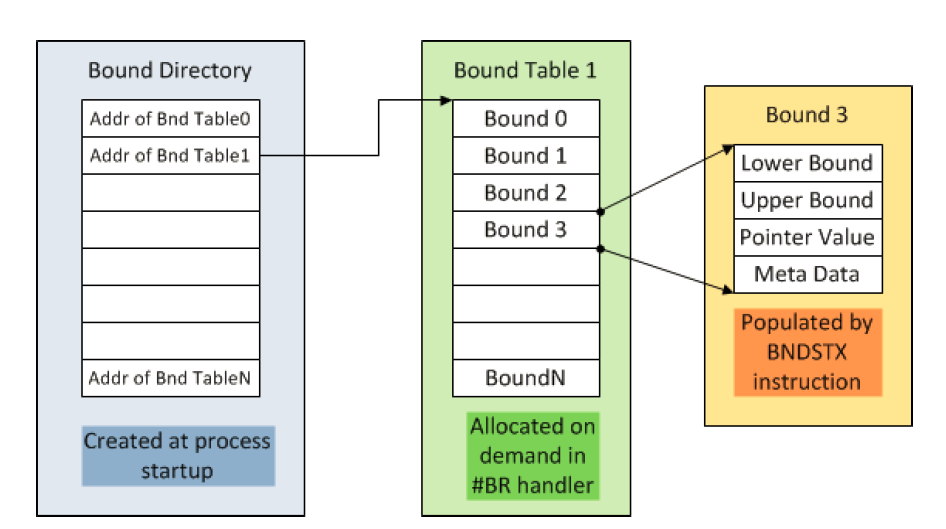Future work
Both software and hardware-based advances can be added to strengthen code against this class of issue. On the software front, language-based security may offer some relief. This can span using a safer variant of C [CHECKED__C] [1] to refactoring code to a type-safe language [RUST][2]. These are huge tasks, though, given the existing software catalog and would challenge software portability. As such, a language-based approach is not a near term option.
As we go from software to hardware, though, one option appears feasible. Specifically, recent hardware advances include the Intel® Memory Protection Extensions (Intel® MPX). This is a new capability introduced into Intel Architecture [IA32SDM][3][MPX][4]. Intel MPX can help detect the buffer overflow or underflow with a set of new Intel® MPX instructions and the compiler support. When Intel® MPX is enabled, a Bounds Table is constructed to store the pointer value, lower bound of the buffer, and the upper bound of the buffer. See figure 4-12.
The BNDMKinstruction can create LowerBound (LB) and UpperBound (UB) in bounds register. The BNDCL/BNDCU/BNDCN instruction can check the address of a memory reference or address against the LB or UB. A BOUND Range Exceeded exception (#BR) is raised if any of the bounds compare instructions fail.
Intel® MPX need compiler support. Microsoft MSVC 2015* Update 1 and GCC 5.1* supports Intel MPX.
Intel® MPX may also be considered to add to a UEFI firmware to help catch the heap pool overflow or the global variable overflow.
Summary
This section discussed some other mechanism which can be used to detect stack overflow or heap overflow in EDK II.
[1][CHECKED__C] Checked C [2] [RUST] Rust language [3][IA32SDM]Intel® 64 and IA-32 Architectures Software Developer’s Manual [4][MPX] Intel® Memory Protection Extensions Enabling Guide
Last updated
